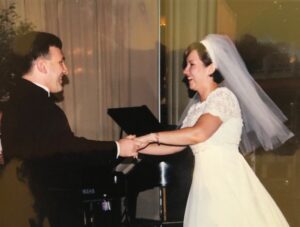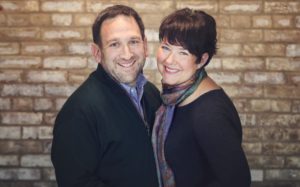Observation One: We are planners. Both of us. We like order, clarity, direction and very few things get us as excited as a detailed timeline or a successful couples “scheduling meeting” where we plot out the days and weeks ahead.
Observation Two: Since Cassie’s metastatic breast cancer diagnosis we’ve both become a little consumed by death. How can you not when the median five year survival rate is less than 30% and you’ve been told probably not to expect more than 5-6 years? We’ve written about this before in a 7/2/19 post titled “A Focus on the End” and more recently in December 2019 in a post called “A Rabbi, A Death Doula and Mr. Rogers.”
When you combine these two observations it might be natural to think, as we did, that creating a “death plan” for Cassie wouldn’t be that much of a challenge for us. Sure, we knew intuitively that it wasn’t going to be easy because talking about death is one of the furthest things from easy that you can imagine. However, at the same time, we thought that once we had accepted the importance and value of death planning we would just get it done. We were wrong.
We waited, procrastinated, avoided it and then finally gave ourselves a deadline. Then we blew right by it. One of us as a time would remind the other and we would commit anew, only to revert to procrastination mode. Then one day it was done. Cassie sat down and batted it out. She created a Google doc and just started writing. Afterwards, she told Dan that it was done and we scheduled time to go over it together. And waited and delayed and rescheduled and rescheduled again. Dan was scared and sad. He didn’t want to see what Cassie had written even though he knew it was important. Cassie wanted to share what she had come up with but also really understood Dan’s hesitation. As we’ve said before, this shit is hard.
And then we did it. We sat down together while we were in California on a nice, warm sunny day (that helped) and talked it through. First, though, we agreed that it was very much a draft plan AND that even though it was Cassie’s death plan it had to “feel right” for both of us. We talked in advance about how something might feel right to Cassie but not to Dan and agreed to be patient with each other and really try to listen and hear what the other was saying. It’s complicated because of course the wishes of the person dying (or who you think will die first) matter most, but it’s the other person who will be experiencing the results of the plan — being bedside in the final days, reading the obituary, sitting through the funeral, greeting friends and family. Like many (most) things in marriage it had to work for both of us.
It turned out the dreading and procrastinating was probably the hardest part. Dan looked at what Cassie drafted and asked a bunch of questions. We explored different possibilities, clarified a number of things and made some changes. Then we hit save and it was done. We decided to sit on it for a while and then give it another look before “locking it down” which we have now done. That said, we also agreed that we can revisit it over time as Cassie’s cancer progresses but for now at least we can rest more easily knowing that we have answered a lot of the big questions … for Cassie.
You see, we’ve also agreed that we should now do the same thing for Dan even though he doesn’t have a terminal illness. When Dan’s dad and mom died one of the few things that made those sad days easier was that they had shared some of their wishes in advance. The death doulas who led the community education class we took late last year made the same point — you might not get the death you want but you certainly won’t get it if you don’t plan for it and instead leave everything to chance.
So Dan’s plan is next up. To make that a little easier we took the questions we answered for Cassie (many of which came from our death doula class) and created a little planning worksheet (see observation one above). We’ve attached it to this post below in case it might prove helpful for anyone else who wants to tackle a death plan BUT we want to really emphasize that we are not experts nor trying to tell anyone what they should do. ( Death Plan Work Sheet.August 2020.) These are simply the main questions we asked ourselves as we contemplated Cassie’s death and that we will now wrestle with again as Dan creates his plan. That is after we finish the current round of waits, delays and procrastination.

